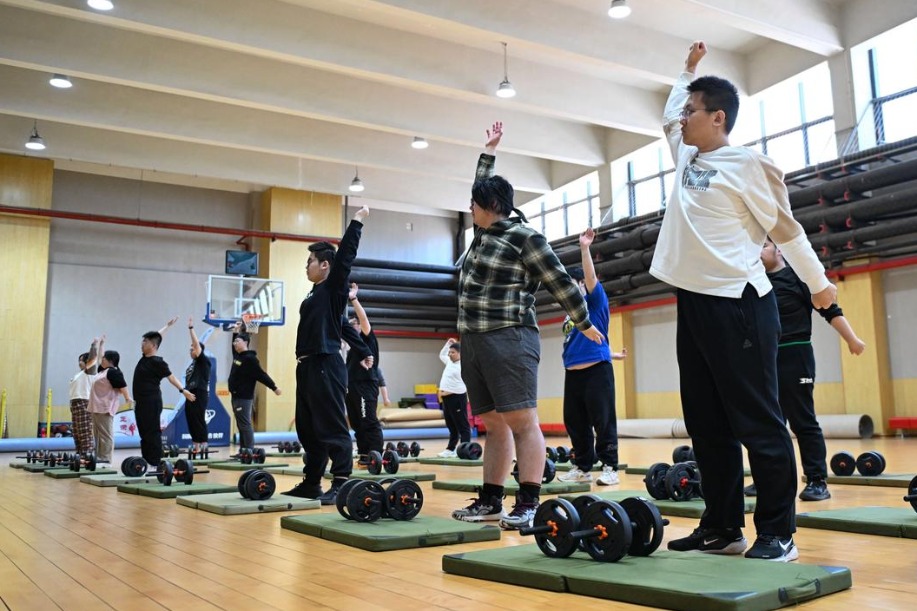SHENYANG: When Wang Zhucen signed up for the first-ever weight management course at Dalian University of Technology in the northeastern Chinese city of Dalian, he was not sure what would come. However, after 21 days of regular exercise, he managed to lose 6.3 kg of weight.
“This is the best testament to my hard work and perseverance. I felt happier when I sweated for an hour every day doing exercises with my classmates,” Wang said.
Dalian University of Technology is among a growing number of Chinese universities that are taking proactive steps to address the growing waistlines, particularly those of young people.
Students enrolled in the university’s weight management course can choose to participate in either a 21-day intensive program or a full-semester curriculum, covering scientific exercise, nutrition guidance and mental health support.
The course can help the students develop healthy lifestyles, improve their physical health and make them more confident and optimistic about the future, said participants.
Thirty-three students in the first intensive session lost a total of 133 kg of weight. They also showed noticeable improvements in their blood pressure and mental health.
From fat-loss meals in campus canteens to lifestyle clinics and weight loss competitions, universities across the country are introducing a wide array of programs to help students manage their weight and embrace healthier lifestyles.
Recently, South China Agricultural University in Guangzhou in south China held its first weight management competition. Student contestants took on physical challenges such as carrying grain on unicycles and carrying loads with carrying poles on their shoulders across obstacle courses. Each student also received a health record to track their progress, part of a larger initiative to offer comprehensive health support. Shi Shengjun, a graduate student, said he joined the competition hoping to take the first step towards tackling his weight problem. “I’ve always avoided socializing with other people because of anxiety over my body image,” Shi said. “Now I want to make a change with the support of a scientific system and my peers.” –Agencies






